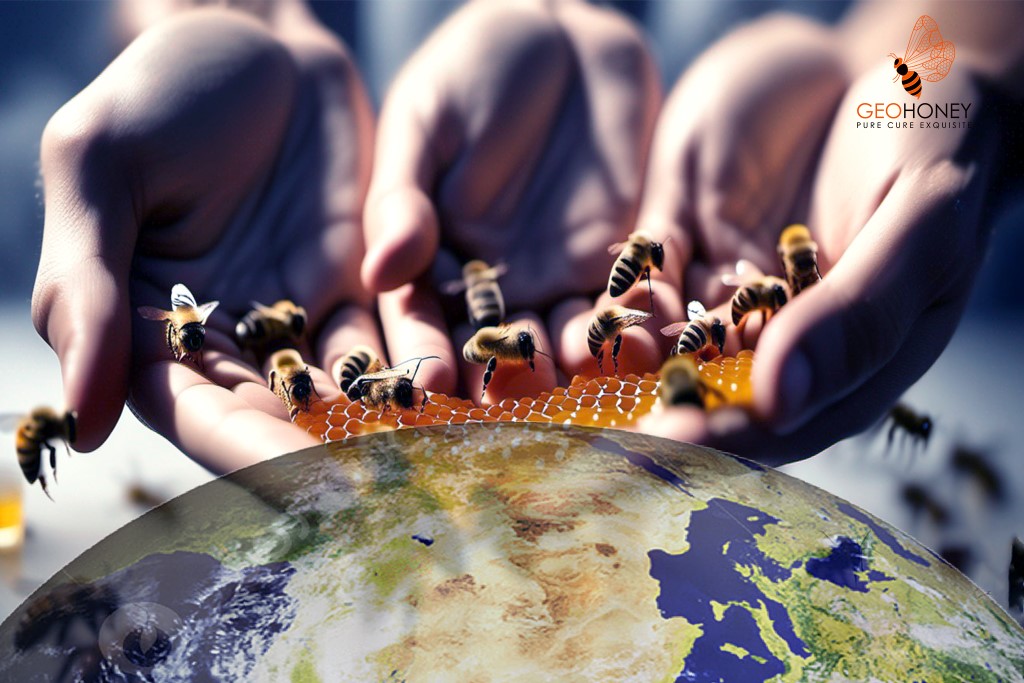- Tokyo: 18:01
- Singapore: 17:01
- Dubai: 13:01
- London: 09:01
- New York: 04:01
How Protecting Bees Can Make a Difference in Saving Our Planet

Introduction
Imagine a world without the gentle hum of bees, where flowers droop and fruits refuse to ripen. It is within this buzzing symphony that the balance of our ecosystem thrives, making it imperative to understand the significance of these tiny creatures.
But bees are not just providers of delicious honey or facilitators of juicy fruit; they are ecological superheroes with a profound impact on our planet's biodiversity. Through their tireless work as diligent pollen-spreading adventurers, they contribute to preserving diverse habitats for countless wildlife species. In this blog, we will explore the importance of bees, the threats they face, and how we can take action to protect them.
The Importance of Bees
Bees are not just buzzing insects; they are vital pollinators responsible for fertilising flowering plants. As they collect nectar and pollen from flowers, bees transfer pollen grains between plants, enabling them to reproduce. This process is known as pollination and plays a fundamental role in food production.
The impact of bees goes beyond agriculture; their activities contribute to the biodiversity and health of ecosystems worldwide. By facilitating plant reproduction, bees help maintain diverse habitats for other wildlife species.
Furthermore, beehives serve as models of social cooperation within bee communities. Each member has specific roles: workers gather food, drones mate with queens, while the queen lays eggs and ensures hive survival.
Threats to Bees
Bees, those tireless pollinators vital to our environment's well-being, find themselves in the crosshairs of numerous threats. These challenges endanger their populations and disrupt the delicate balance they uphold:
Habitat loss and fragmentation: As urbanisation spreads its concrete web and agriculture expands relentlessly, bees suffer from habitat destruction and fragmentation. Their nesting sites become fragmented in an ever-changing landscape.
Pesticides and agrochemicals: The widespread use of pesticides poses a grave danger to both managed honeybees and wild bee populations alike. These chemicals harm their health, impair navigation abilities, and undermine their crucial roles as pollinators.
Climate change and extreme weather patterns: Rising temperatures caused by climate change bring about shifts in flower blooming times - an essential food source for bees - leading to mismatches between their life cycles and available nourishment. Erratic weather events further compound the problem by disrupting feeding patterns critical for bee survival.
These threats cast a shadow over these remarkable creatures' existence - one that echoes far beyond their buzzing wings. We must acknowledge these challenges and take collective action to protect bees from further harm.
Solutions to Protect Bees
To safeguard these invaluable creatures' future existence on Earth, we need collective action:
Planting bee-friendly gardens: Create gardens with native flowering plants that provide an abundant source of nectar throughout different seasons.
Going chemical-free: Avoid using harmful pesticides or agrochemicals in your garden or agricultural practices. Choose natural alternatives to protect plants.
Becoming a community scientist: Engage in citizen-science projects that monitor and study bees, contributing to our understanding of their behaviour and population dynamics.
Protecting ground-nesting bees: Leave patches of undisturbed soil for ground-nesting bee species as they require specific conditions for survival.
Supporting ecological agriculture: Encourage sustainable farming practices that prioritise pollinator-friendly habitats, reduce pesticide use, and promote crop diversity.
Conclusion
However, habitat loss, pesticides, climate change, and other threats pose significant risks to bee populations. It is crucial for individuals like us to take immediate action by planting bee-friendly gardens, avoiding harmful chemicals, participating in citizen-science projects focused on bees' conservation efforts, protecting ground nesting sites, supporting ecological agriculture initiatives, and preserving wild habitats.
Let's join hands in safeguarding these remarkable creatures so that future generations can continue benefiting from the invaluable services provided by our buzzing friends while ensuring a healthier planet for all living beings!



